
Exploring the Highest Paying Finance Jobs in 2025: A Comprehensive Guide

As the finance sector continues to evolve, understanding the highest paying finance jobs in 2025 is crucial for anyone looking to make a career move. This blog will delve into the various roles available in finance, their requirements, and the lucrative salaries that accompany them.
Table of Contents
- 🌟 Introduction to Finance Careers
- 💰 Top 10 Highest Paying Finance Jobs
- 📊 Role of Accountants
- 💼 Responsibilities of Financial Advisors
- 📈 Insights into Financial Analysts
- 📉 The Role of Economists
- 🏦 Understanding Hedge Fund Managers
- 📊 The Importance of Credit Risk Managers
- 💼 Portfolio Managers and Their Responsibilities
- 🏦 Investment Bankers: A Key Role
- 🔍 Chief Compliance Officers Explained
- 📈 The Role of Chief Financial Officers
- 🔚 Conclusion: Navigating Your Finance Career
- ❓ FAQs About Highest Paying Finance Jobs
🌟 Introduction to Finance Careers
Stepping into the finance sector can be both exciting and daunting. The finance industry offers a plethora of career opportunities, each with its unique challenges and rewards. Understanding the landscape is essential for making informed decisions about your career path.
From entry-level positions to senior executive roles, finance careers cater to a wide range of skills and interests. This section will provide an overview of various finance careers, their significance, and how they contribute to the overall economy.
Key Characteristics of Finance Careers
- Diverse Opportunities: The finance sector encompasses roles in accounting, investment banking, financial analysis, and more.
- Dynamic Environment: The industry is constantly evolving, influenced by market trends, regulations, and technological advancements.
- High Earning Potential: Many finance jobs offer lucrative salaries, especially as you gain experience and expertise.
- Impactful Work: Finance professionals play a vital role in decision-making and shaping the financial health of organizations.
💰 Top 10 Highest Paying Finance Jobs
As we delve deeper into finance careers, it’s essential to highlight the top-paying positions. Here’s a quick look at the highest paying finance jobs in 2025:
- Chief Financial Officer (CFO)
- Chief Compliance Officer (CCO)
- Investment Banker
- Portfolio Manager
- Credit Risk Manager
- Hedge Fund Manager
- Economist
- Financial Analyst
- Financial Advisor
- Accountant
📊 Role of Accountants
Accountants form the backbone of financial reporting and compliance. They ensure that financial records are accurate and adhere to regulations. This role is critical for maintaining trust and transparency in the financial system.
Accountants typically prepare financial statements, conduct audits, and manage tax filings. Their expertise is essential for businesses to navigate complex tax laws and financial regulations. The demand for accountants remains steady, making it a reliable career choice.

Essential Qualifications
- Bachelor’s degree in accounting, finance, or a related field.
- CPA certification is highly regarded.
- An MBA can enhance career prospects and advancement opportunities.
💼 Responsibilities of Financial Advisors
Financial advisors play a crucial role in guiding clients through their financial journeys. They offer personalized advice on investments, insurance, estate planning, and retirement savings.
The primary goal of a financial advisor is to help clients achieve their financial objectives by optimizing their financial health. This requires a deep understanding of market trends and financial products.
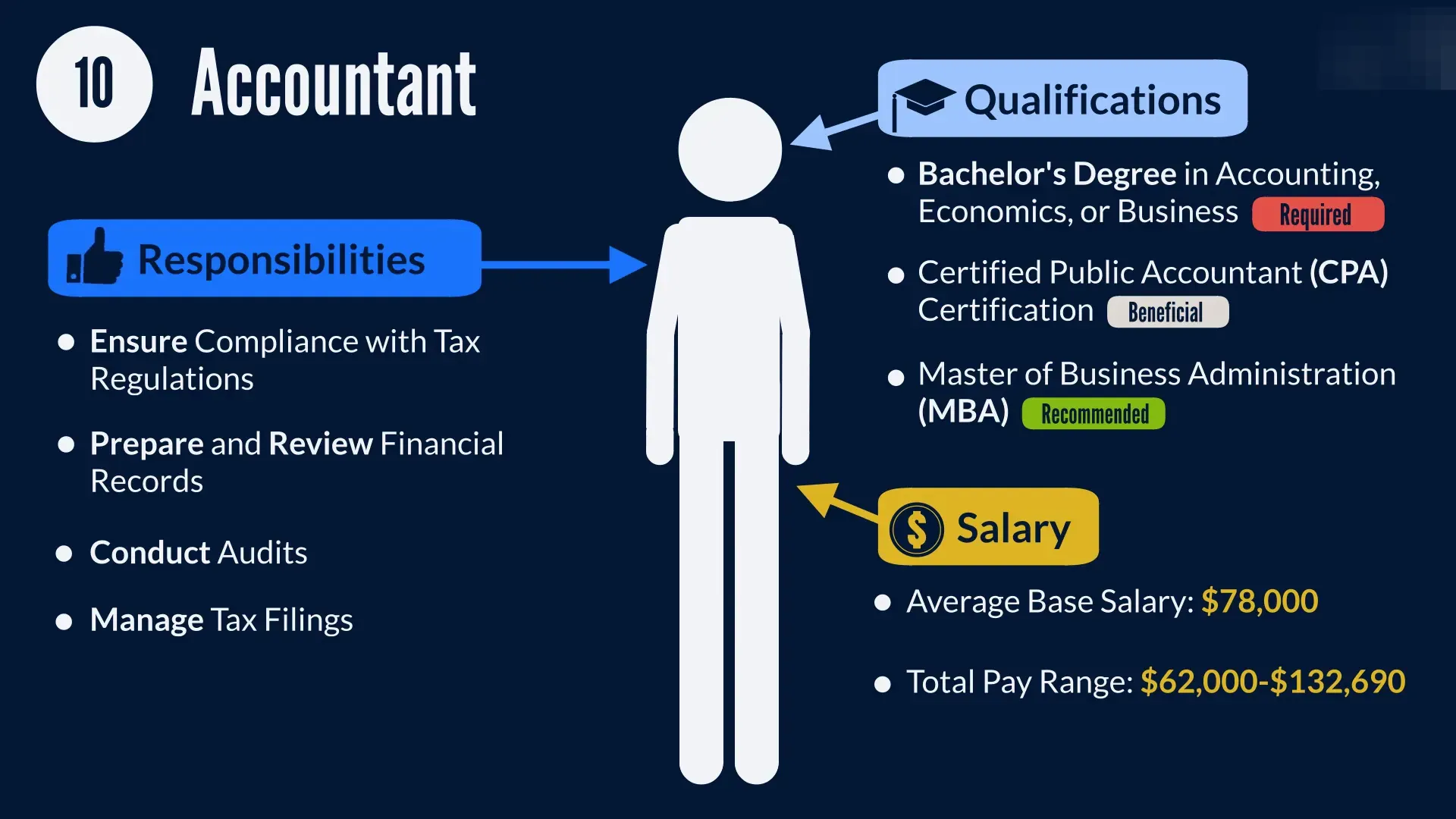
Key Skills Required
- Strong analytical skills to assess clients’ financial situations.
- Excellent communication skills for effective client interactions.
- Certifications like Certified Financial Planner (CFP) enhance credibility.
📈 Insights into Financial Analysts
Financial analysts are key players in investment decision-making. Their role involves analyzing financial data, market trends, and economic signals to provide actionable insights.
This position requires a strong foundation in finance and economics, often necessitating advanced degrees. Financial analysts significantly impact both corporate strategies and individual investment decisions.

Career Path and Growth
- A bachelor’s degree in finance, economics, or a related field is essential.
- Certifications like Chartered Financial Analyst (CFA) can enhance job prospects.
- The role is projected to grow, with increasing demand for financial analysis expertise.
📉 The Role of Economists
Economists analyze complex data to understand economic trends and inform policy-making. They provide essential insights that help shape economic strategies at both national and global levels.
Typically, economists hold advanced degrees and possess strong analytical skills. Their work is vital for governments and organizations to make informed financial decisions.

Salary Expectations
- Average salary ranges from $80,000 to $200,000 annually.
- Advanced degrees (master’s or Ph.D.) often lead to higher earning potential.
- Economists are in high demand, especially in government and research institutions.
🏦 Understanding Hedge Fund Managers
Hedge fund managers are responsible for managing investment funds with the goal of maximizing returns. They work primarily with high-net-worth individuals and institutional investors.
This role requires extensive experience in finance and investment strategies. Hedge fund managers must navigate complex financial landscapes to mitigate risks effectively.
Path to Becoming a Hedge Fund Manager
- A master’s degree in finance or economics is typically required.
- At least 10 years of relevant experience in finance, especially in investments.
- Certifications like Chartered Hedge Fund Associate (CHA) can enhance career opportunities.
📊 The Importance of Credit Risk Managers
Credit Risk Managers are essential for maintaining the financial stability of institutions. They utilize advanced mathematical models to assess potential risks associated with loans and investments. By identifying and mitigating these risks, they protect organizations from significant financial losses.
This role requires a deep understanding of financial products and market conditions. A specialized master’s degree focused on quantitative studies is often necessary. With an average salary of $125,000, Credit Risk Managers are highly valued for their expertise.
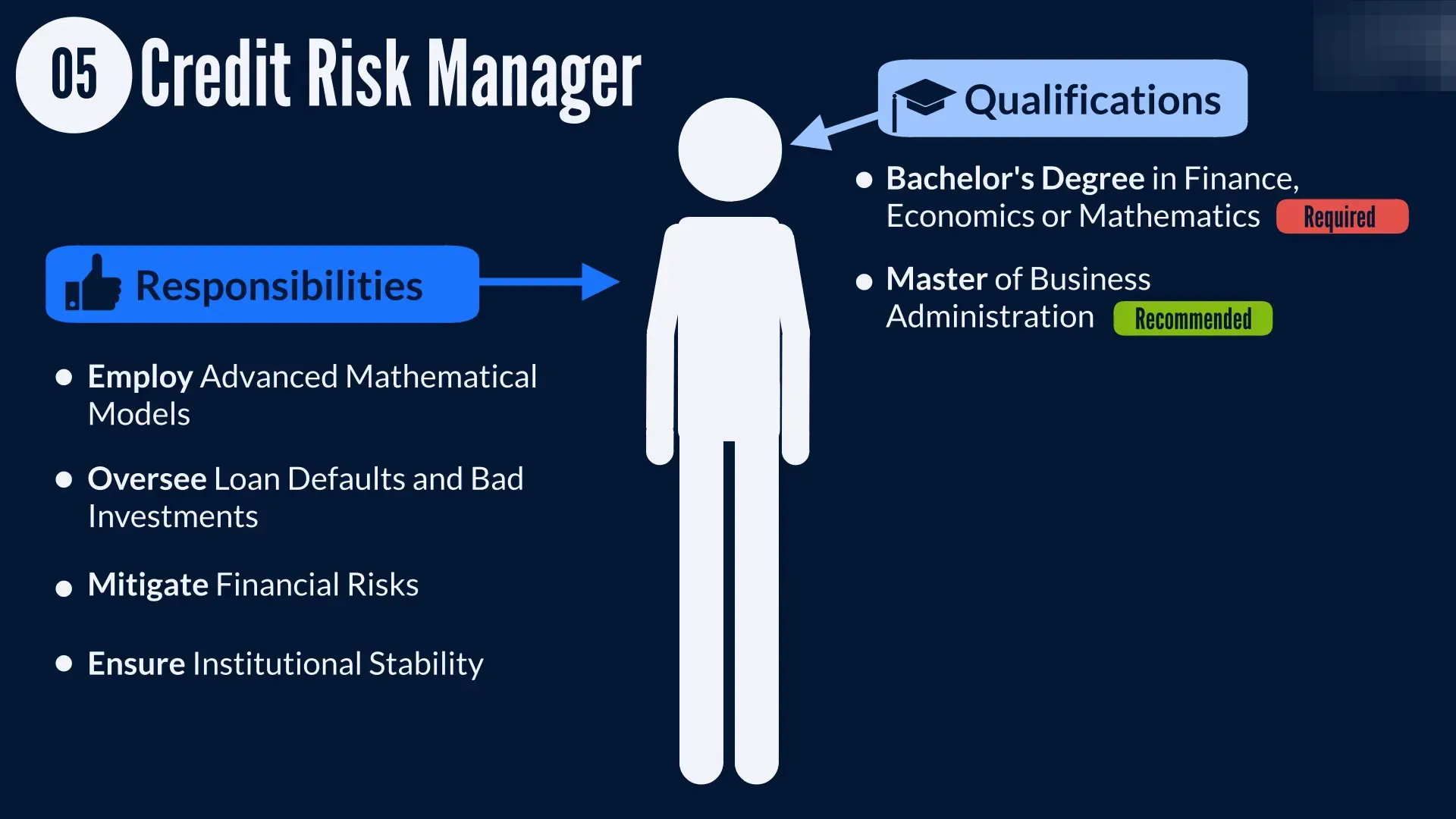
Key Responsibilities
- Risk Assessment: Evaluating the creditworthiness of borrowers and investments.
- Monitoring: Continuously tracking economic trends and their impact on credit risk.
- Reporting: Preparing detailed reports for senior management to inform decision-making.
💼 Portfolio Managers and Their Responsibilities
Portfolio Managers play a pivotal role in overseeing investment portfolios. They make strategic decisions aimed at optimizing performance based on market conditions. Their expertise allows them to adjust investment strategies to align with financial goals.
Typically, Portfolio Managers hold an MBA or a master’s in finance, along with significant experience in investment analysis. With a salary range of $99,000 to $167,000, they are compensated well for their crucial contributions to investment success.
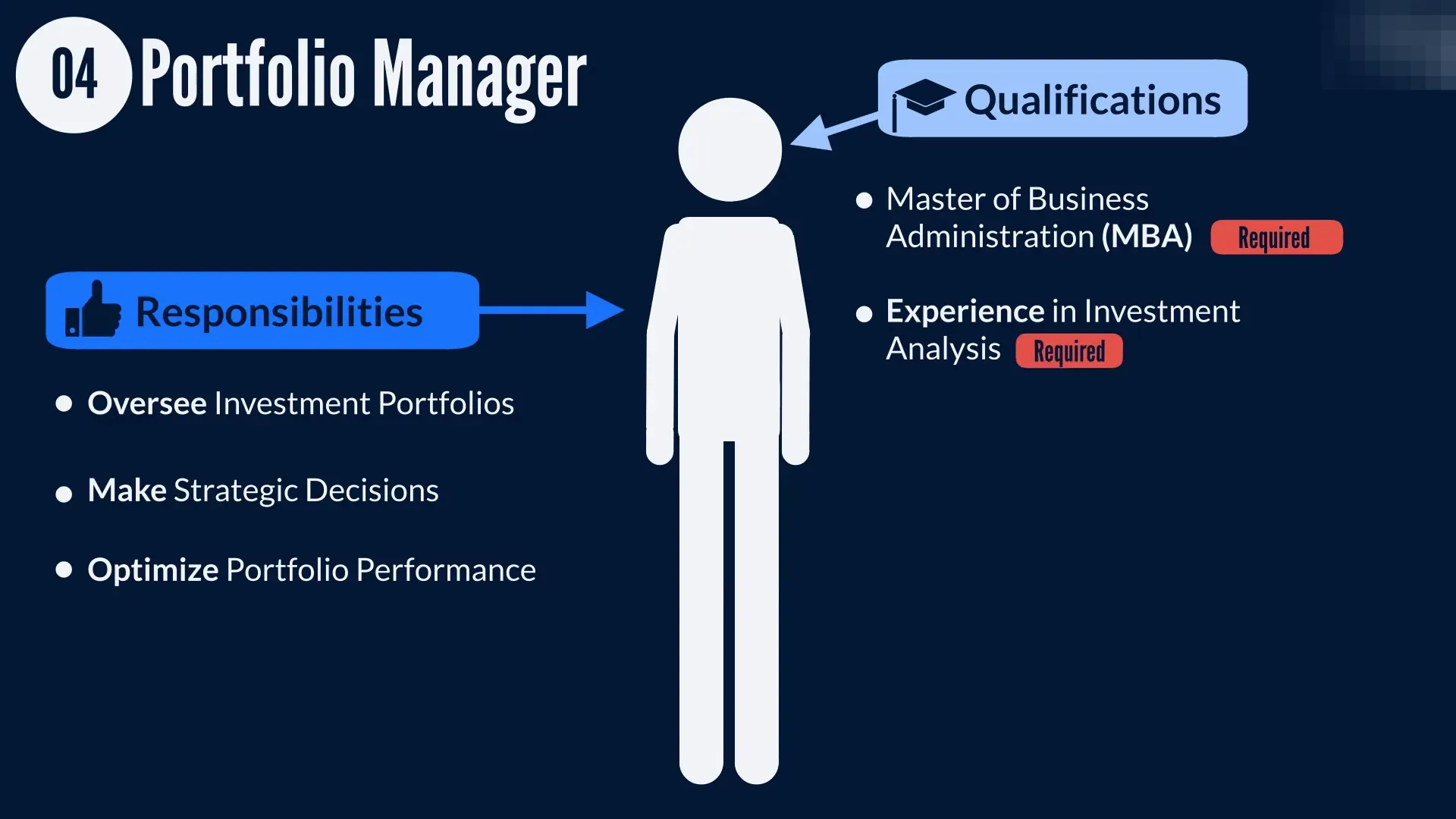
Essential Skills
- Analytical Skills: Ability to analyze market trends and performance data.
- Decision-Making: Making informed investment choices quickly.
- Communication: Effectively conveying strategies and outcomes to clients and stakeholders.
🏦 Investment Bankers: A Key Role
Investment Bankers are critical in advising clients on mergers, acquisitions, and capital raising. They negotiate deals and provide financial services that are vital for corporate and government entities. This position demands not only a finance or business degree but often an MBA for competitive advantage.
Investment Bankers can expect salaries ranging from $108,000 to $201,000, with substantial bonuses that can significantly boost their earnings. Their role is integral to shaping corporate financial strategies.
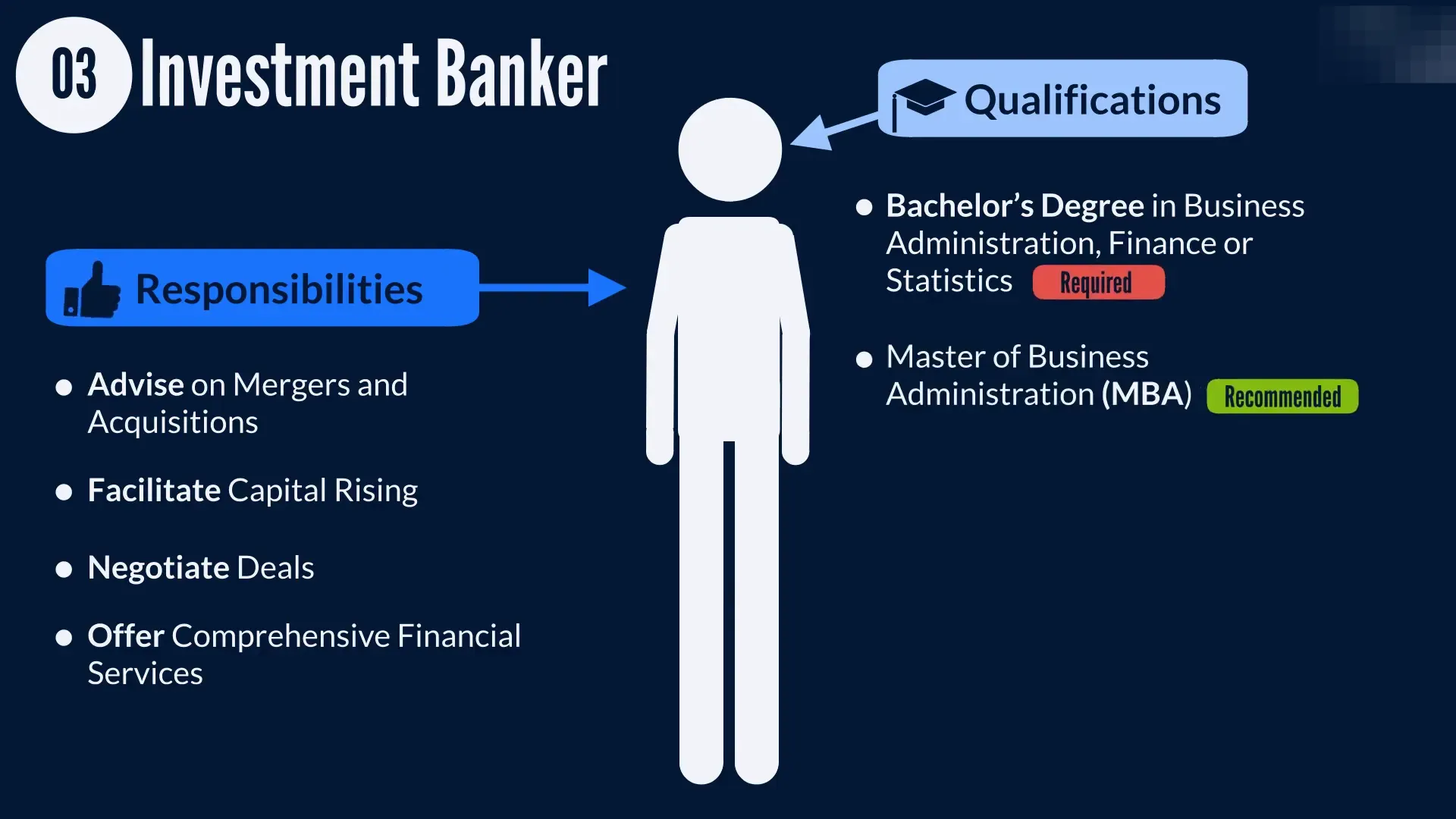
Responsibilities of Investment Bankers
- Client Advisory: Offering strategic advice to clients on financial transactions.
- Market Analysis: Conducting thorough market research to identify opportunities.
- Deal Structuring: Creating financial structures for transactions to maximize value.
🔍 Chief Compliance Officers Explained
Chief Compliance Officers (CCOs) ensure that organizations adhere to regulatory and legal standards. They play a crucial role in mitigating financial and regulatory risks. With a bachelor’s degree in a relevant field and an MBA, CCOs command a salary ranging from $91,000 to $278,000.
CCOs are responsible for developing compliance programs and training staff on regulatory requirements. Their work is vital in maintaining an organization’s integrity and reputation.
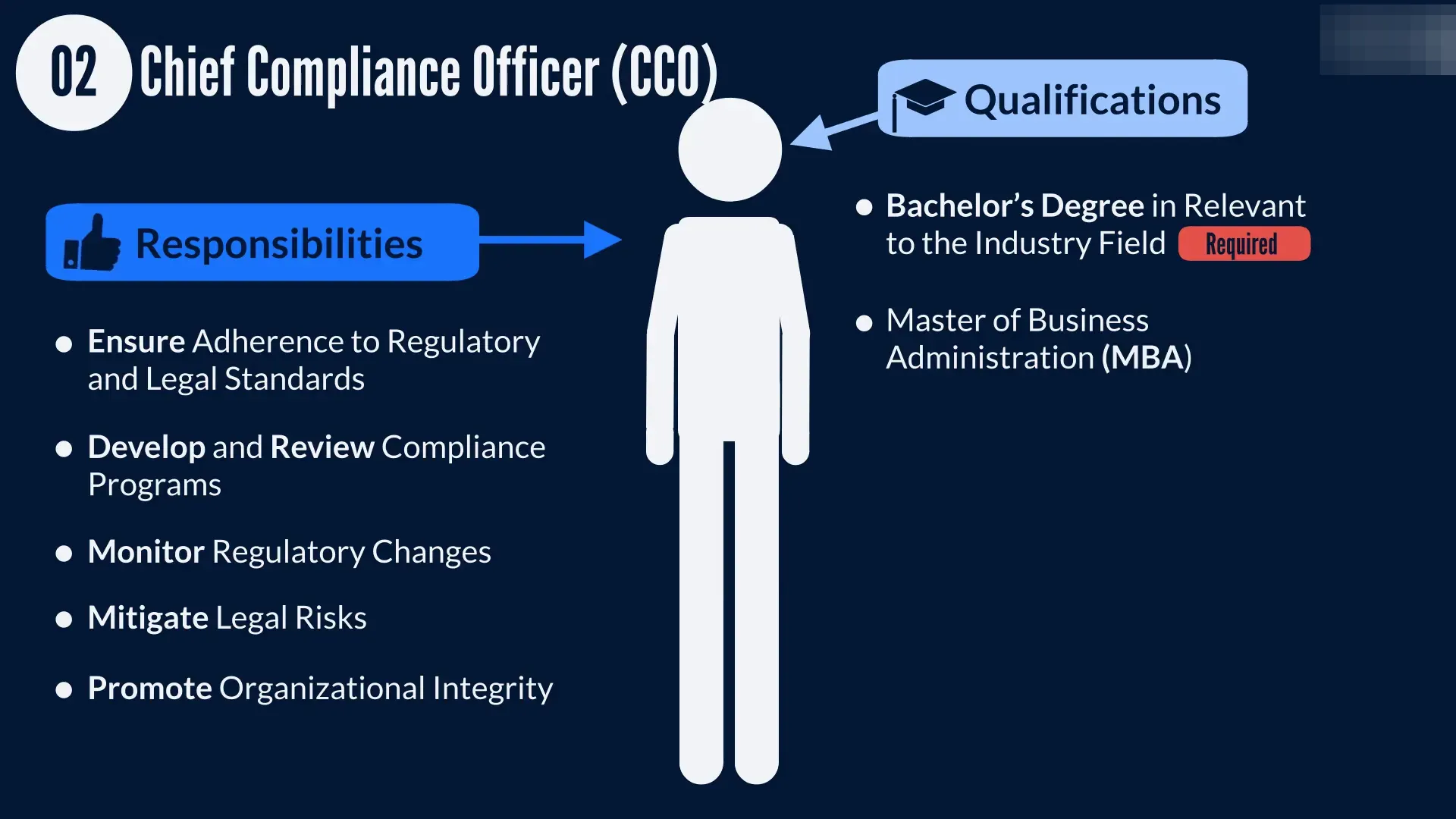
Key Duties
- Policy Development: Creating and implementing compliance policies and procedures.
- Risk Management: Identifying potential compliance risks and developing mitigation strategies.
- Training: Educating employees on compliance issues and best practices.
📈 The Role of Chief Financial Officers
Chief Financial Officers (CFOs) are at the helm of an organization’s financial management. They oversee financial planning, risk management, and ensure that financial strategies align with overall business goals. This prestigious position requires an advanced degree and significant leadership experience.
CFOs earn between $142,000 and $250,000 annually, with an average salary of $187,000. Their expertise is critical in shaping the financial future of their organizations.
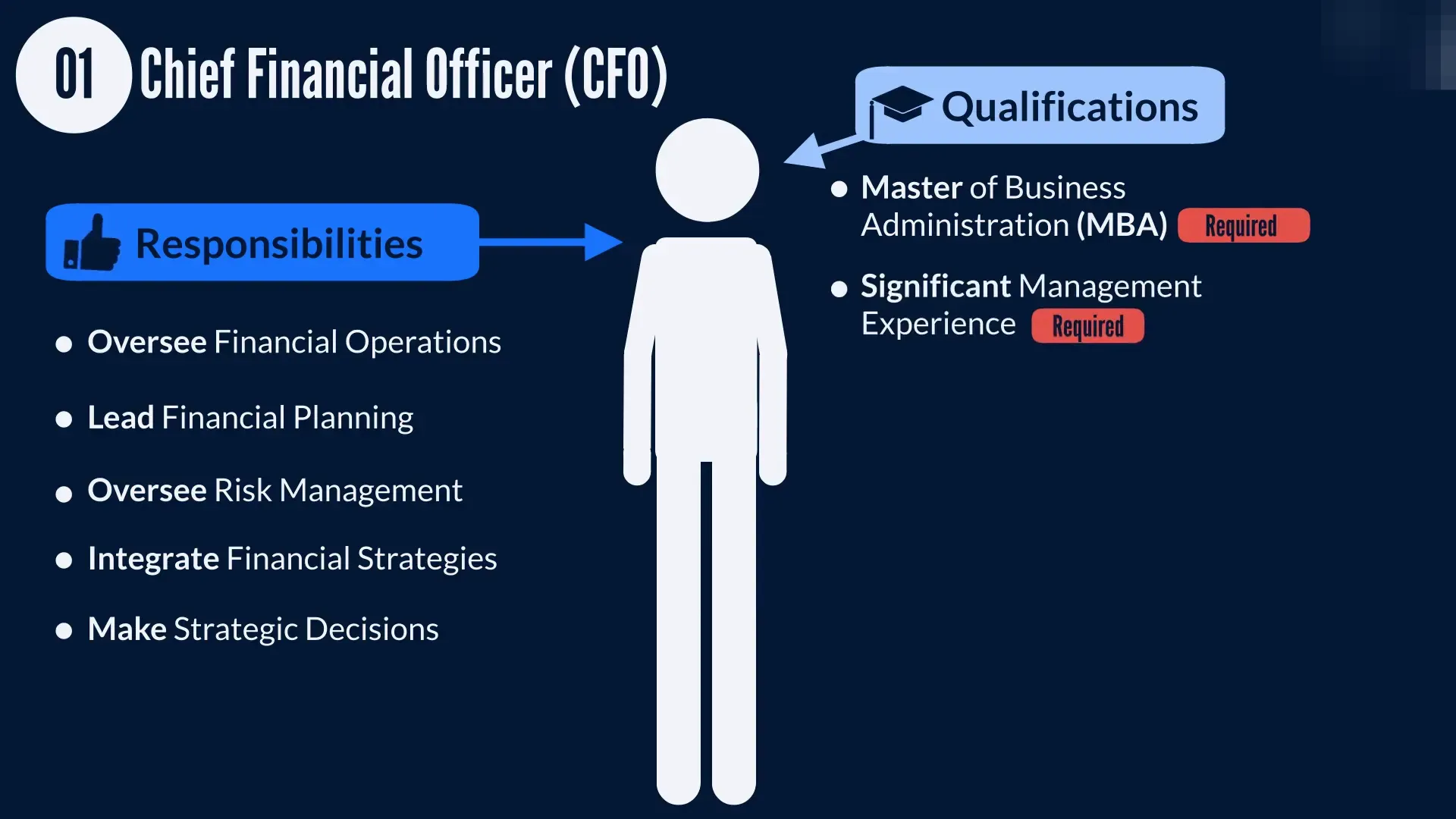
Primary Responsibilities
- Strategic Planning: Developing financial strategies to support business objectives.
- Financial Reporting: Ensuring accurate financial reporting and compliance with regulations.
- Investor Relations: Communicating with investors about financial performance and strategy.
🔚 Conclusion: Navigating Your Finance Career
Navigating a career in finance can be both challenging and rewarding. Understanding the roles and responsibilities of various positions is crucial for making informed decisions about your career path. Whether you aspire to be a CFO, a Credit Risk Manager, or an Investment Banker, each role offers unique opportunities for growth and financial reward.
As the finance sector continues to evolve, staying informed about the highest paying finance jobs in 2025 will help you position yourself strategically in the job market. Invest in your education and skills, and you’ll be well on your way to a successful finance career.
❓ FAQs About Highest Paying Finance Jobs
What qualifications are needed for the highest paying finance jobs?
Most high-paying finance positions require at least a bachelor’s degree in finance, accounting, or a related field. Advanced degrees such as an MBA or relevant certifications can enhance job prospects.
What is the average salary for finance professionals?
Salaries in finance vary widely depending on the role, experience, and location. However, many positions offer lucrative salaries, often exceeding $100,000 annually.
Are there opportunities for career growth in finance?
Yes, the finance sector is known for its potential for career advancement. With experience and continued education, professionals can move into higher-paying roles and leadership positions.
